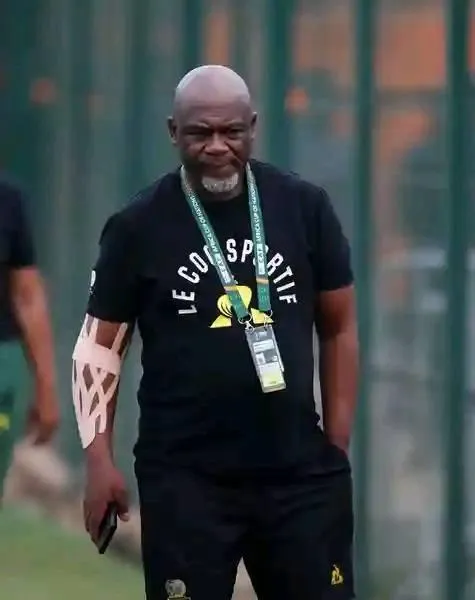COMMENT | SAFA's cynical 'ice-breaker' exonerates Bafana manager Tseka, the yellow-card defaulter
Sport Minister Gayton McKenzie’s recent statements regarding the Teboho Mokoena yellow card incident have raised questions about accountability within the South African Football Association, as fans demand transparency in the wake of Bafana Bafana’s controversial points deduction.

Vincent Tseka, the Bafana team manager.
Image: Fcebook
Thanks to a cynical ‘ice-breaker’ Sport, arts and culture minister Gayton McKenzie has let the South African Football Association (Safa) off the hook in the Teboho Mokoena yellow-card saga.
In the latest twist in the ongoing saga involving Bafana Bafana midfielder Mokoena, McKenzie has lifted the pressure off the organisation, which many have deemed contentious. The move has raised eyebrows across the sporting community, as Safa produced a calculated ‘ice-breaker’, one that some critics argue allows Safa to escape scrutiny without addressing the underlying issues.
The yellow card debacle, which saw Bafana Bafana docked three points by Fifa, was primarily attributed to team manager Vincent Tseka’s oversight. He failed to record that Mokoena had received two yellow cards and allowed him to play against Lesotho in March, with significant consequences for the team’s qualification hopes. After receiving two yellow cards, Mokoena would have been automatically suspended, and Tseka should have informed the team’s management.
At the heart of the incident was Tseka’s decision to leave the team’s dugout to buy ice during the match, which ultimately led to his failure to adequately track Mokoena’s card accumulation. While absolving Safa, McKenzie praised the beleaguered manager’s commitment to the team.
For weeks, the local footballing fraternity has been in turmoil over Mokoena’s situation. The star’s performance on the pitch is well known, yet it’s his off-the-field dealings that have thrust him into the limelight over the past few months. Concerned fans and analysts have questioned Safa’s handling of the matter, crying foul over what they perceive as a lack of transparency and accountability from the governing body.
McKenzie’s recent statements come at a pivotal moment, as the public’s demand for answers has heightened. Rather than holding Safa accountable for what some argue is negligence, McKenzie opted for a conciliatory stance. He described the organisation’s efforts as adequate.
This sentiment has been interpreted as a clear indication of McKenzie’s intent to protect the status quo, while fans are asking critical questions. Is McKenzie’s approach indicative of a broader reluctance to confront issues in South African football? And what does it say about the Ministry’s commitment to fostering a culture of accountability in sports organisations?
With an air of scepticism, fans and commentators alike agree that the dialogue initiated by the Minister does not reflect the urgency or seriousness of the concerns laid out by many within the football community.
This matter has finally concluded. Despite McKenzie’s assertive stance, he lacks the capacity to act against SAFA. Any such move would result in FIFA suspending SAFA, thereby prohibiting the country from participating in all international events.
Should this occur, McKenzie could face significant backlash from South Africans.